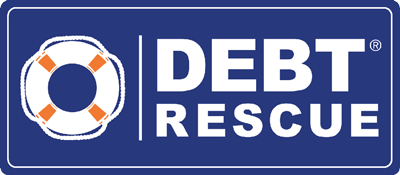The generosity of creditors sparked by COVID-19 is coming to an end. Major creditors, including the ATO, continue to aggressively ramp up their collection efforts to get back what’s owed to them.
If you’re in a debt spiral like many Australians right now and have failed to pay your dues to date, you’re probably feeling the pressure. Especially if you have debt collectors on your back and the phone won’t stop ringing.
We know just how stressful this can be. You feel like you’re being backed into a corner and as if there’s no way out other than losing your home or other valuable assets. However, we’re here to reassure you, that this isn’t the case.
While ideally, you don’t want to get to this point, there are options for dealing with unpaid debt and those dreaded debt collector calls that can instead, result in a positive outcome.
Personal debt collection laws
Debt collection is legal here in Australia.
As a debtor (the person who owes money to a creditor), you’re legally responsible for paying debts you legitimately owe. However, a creditor (the person or organisation you own money to) should never harass you into paying.
Several Commonwealth consumer laws are relevant to debt collection, and between them lay out what debt collectors can and can’t do. These laws include:
- The Australian Consumer Law (ACL), which is a schedule to the Competition and Consumer Act 2010 (Cth) (CCA). The ACL is jointly enforced by the ACCC and state and territory consumer protection agencies
- Part 2, Division 2 of the Australian Securities and Investments Commission Act 2001 (Cth) (ASIC Act), which is enforced by ASIC
- National Consumer Credit Protection Act 2009 (Cth) (NCCP) (Source: ACCC)
Other laws relevant to debt collection include Commonwealth privacy laws, state and territory fair trading laws, and the Bankruptcy Act 1966.
What can debt collectors do (and not do)
As laws can be complex, we’ve summarised what debt collectors can and can’t do when it comes to recovering unpaid debt below, so you know your rights. There are serious penalties for debt collectors who don’t follow this guidance.
What can debt collectors do?
- Write to you (by mail, email or social media) or call you to demand payment between 7.30 am-9.00 pm on weekdays and 9.00 am-9.00 pm on weekends – no more than three times a week
- Visit your house to demand payment only if repayment arrangements can’t be worked out over the phone or by mail/email. They can only contact you in person between 9.00 am and 9.00 pm. Usually, you have to agree first
- Speak with your lawyer or spouse
- Take you to court to recover the money
- Ask the court to enforce debt payment, provided they have a court order
- Take or sell any property they have a mortgage or other form of security over
What can’t debt collectors do?
- Threaten, intimidate or harass you or your friends and family
- Use any form of physical force or verbal coercion
- Enter your property without court permission
- Provide you with misleading information, make false statements, or try to deceive you in any way
- Charge you interest and fees that aren’t part of the original debt
- Take unfair advantage of any kind of vulnerability or disability
- Enforce a claim for money after six years have passed (or three in the NT)
- Send you to prison
- Take your children
If a creditor or debt collector is not following any of the above guidance, you should seek legal advice right away. You can also contact the Australian Securities and Investments Commission (ASIC or the Australian Competition and Consumer Commission (ACCC) to report it.
What happens if you ignore debt collector calls?
If they’re following the rules and you can’t afford to make payments, don’t stick your head in the sand.
While it may be tempting to ignore the phone or emails in the hope they’ll leave you alone, doing this can have significant consequences.
These consequences include:
- Ongoing debt collector calls and visits to reclaim the debt
- Poor credit rating affecting your ability to apply for future credit
- Increased debt as it grows
- Legal action if you continually fail to pay your debt
- Losing your home or other property
The best path forward
While it may seem daunting, especially if your mental health has already been affected by the stress, facing the problem head-on is always the best approach.
When the debt collector calls, letters or emails come, answer and/or respond to them, making sure you’re being cooperative and following the law.
Always be honest with them about your financial situation. Most will be understanding and offer options and plans for repayment. This includes the ATO, who offers repayment plans to help you manage your tax debt.
At the same time, seek expert financial counselling and advice. Our finance and legal specialists can:
- Help you prioritise your debts
- Access emergency relief
- Work with you to improve your budgeting so you can pay your debts (check out our budgeting calculator)
- Assist you in negotiating payment plans with debt collectors and your creditors or apply for hardship relief
If you have many creditors and owe a lot of money, we can also help you work out if bankruptcy may be the best option for your situation.
Not your debt or incorrect amount?
If you believe you’re being chased for a debt that isn’t yours or disagree about the amount owed, your first action should be to let the debt collector know. Also, ask them to provide the following:
- A copy of the contract or agreement
- A statement showing the amount and date of the debt, how it was calculated, the payments made and amounts owing
Seek help to stop the phone ringing
We know from experience that dealing with debt collectors and creditors can be extremely stressful, especially if you don’t know your rights. But by engaging with them, being honest and seeking help straight away, you can wave goodbye to those debt collector calls and say hello to a brighter financial future.
Does your personal debt have debt collectors on your back? Get in touch with our team of debt solution specialists today on 1800 560 557 for professional, non-judgemental support and advice.
-137x60px.png)




